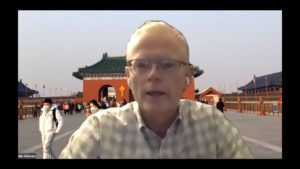
Winning gold medals has been key at the recent Tokyo Olympic Games 2020, with China as one of the major winners. But is that what the Olympics should be about, wonders China veteran Ian Johnson at the Council for Foreign Relations. It should give people in western countries pause to think about China’s course—is it really so brutal, or just a reflection of a system that we all, wittingly or not, follow, asks Ian Johnson.
Ian Johnson
For many, a quick glance at the Olympics medals table reinforces the idea of China as a threat—a country pursuing victory at any cost. Its surge up the table in recent years seems like a perfect allegory for its rising military and economic power—a modern-day Soviet Union that uses a state-sponsored sports machine to game its way to international glory.
The numbers buttress this view. As of Thursday, the People’s Republic sits atop the gold medal race with thirty-four to twenty-nine for the United States. But it has relatively few silver and bronze, a sign that resources have been aimed at disciplines with a higher probability of success. This perception is reinforced by golds being concentrated in a few sports: relatively marginal, rarely involving teams, and disproportionately female.
These are smart choices for winning gold. But it feels against the spirit of the Olympics—the work of a sports bureaucracy that aims to win in the standings rather than create a national sporting culture that organically produces elite athletes.
The role model for these sports programs is the old Soviet Union. Today, the last vestige of this system is Russia. Like the USSR, Russia is a relatively poor country and is fighting a losing battle for Olympic glory—perhaps reflected in its athletes’ repeated penalties for doping. Still, it clings near the top, not quite as good as in the old days but still punching above its weight…
China’s sports machine is more transparent. This is not meant to relativize the pain and suffering of those who don’t make it in China, or the gross inequality of a relatively poor country investing heavily in sports. But it should give people in western countries pause to think about China’s course—is it really so brutal, or just a reflection of a system that we all, wittingly or not, follow?
More at the Council for Foreign Relations.
Ian Johnson is a speaker at the China Speakers Bureau. Do you need him at your (online) meeting or conference? Do get in touch or fill in our speakers’ request form.
Are you looking for more political experts at the China Speakers Bureau? Do check out this list.